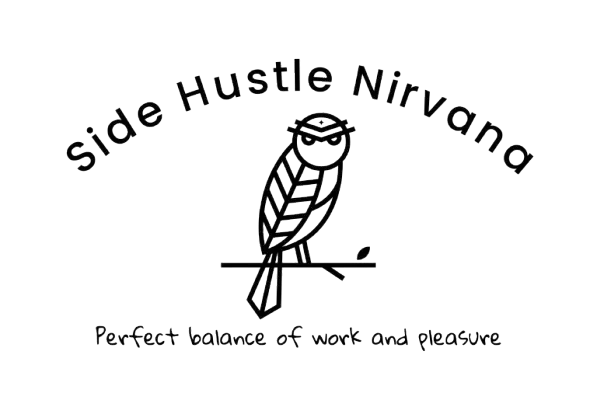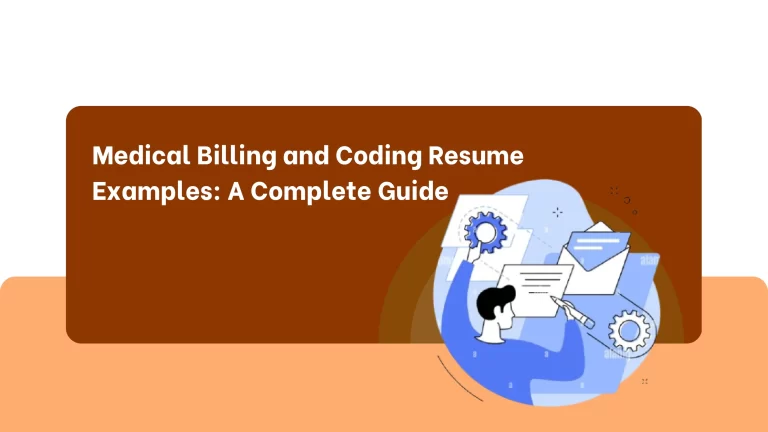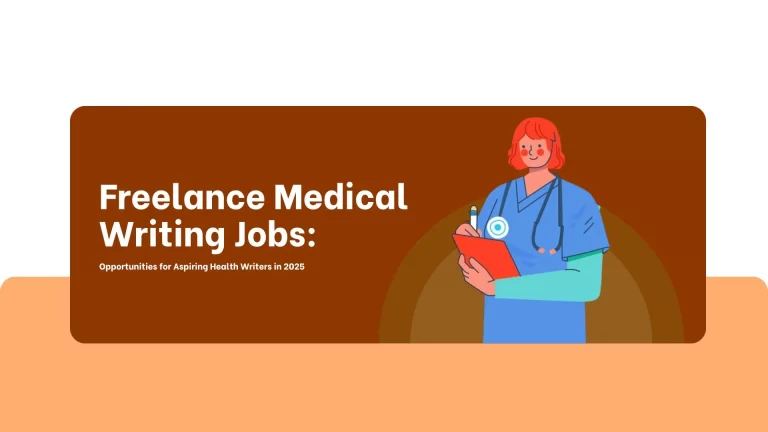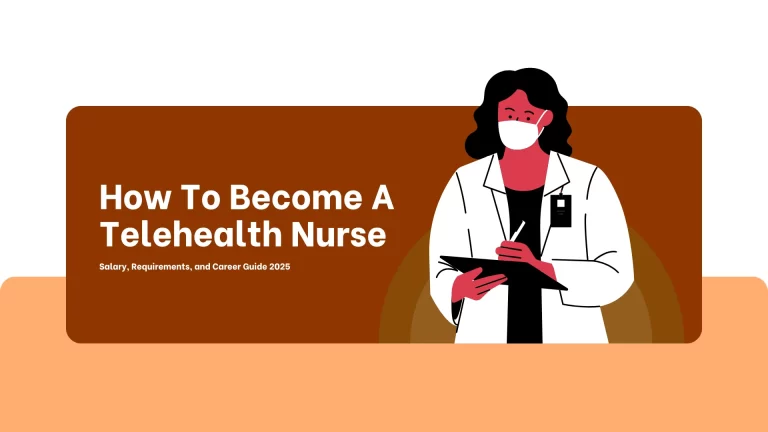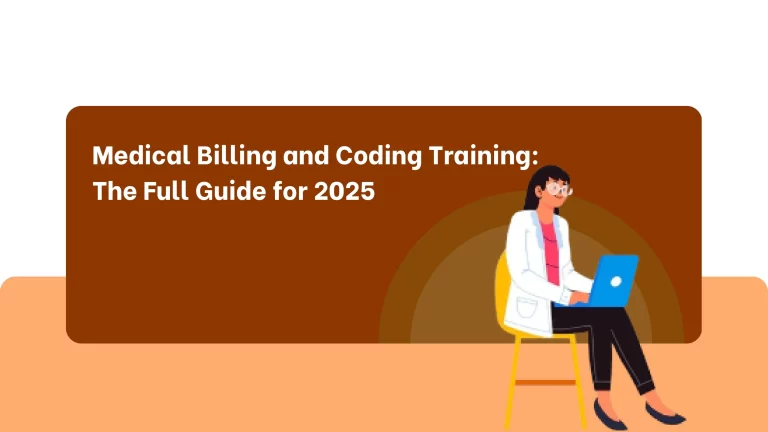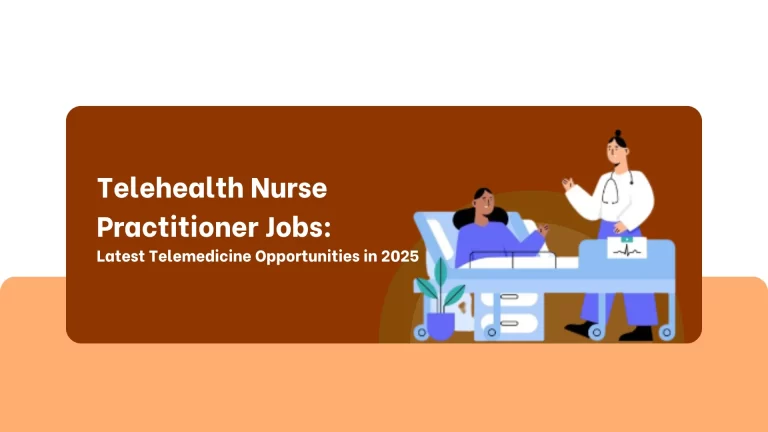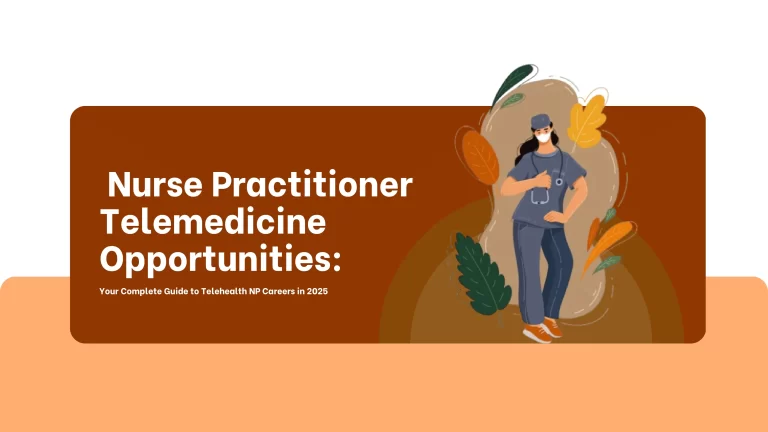Degree in Healthcare Writing: Your Path to Becoming a Medical Technical Writer
Introduction
Healthcare communication is more vital than ever and serves as the backbone of patient education, medical training, and regulatory processes. The demand for healthcare writers with formal education in medical communication is on the rise. Whether it’s crafting materials for medical professionals or simplifying complex medical information for patients, healthcare writers play a pivotal role.
A degree in healthcare writing equips students with the knowledge and practical skills to succeed in this high-demand field. From technical documentation to compelling patient guides, the career prospects are vast. If you’re considering becoming a medical technical writer, this guide will show you how a medical writing degree can set you apart in a competitive industry.
What Is a Degree in Healthcare Writing?
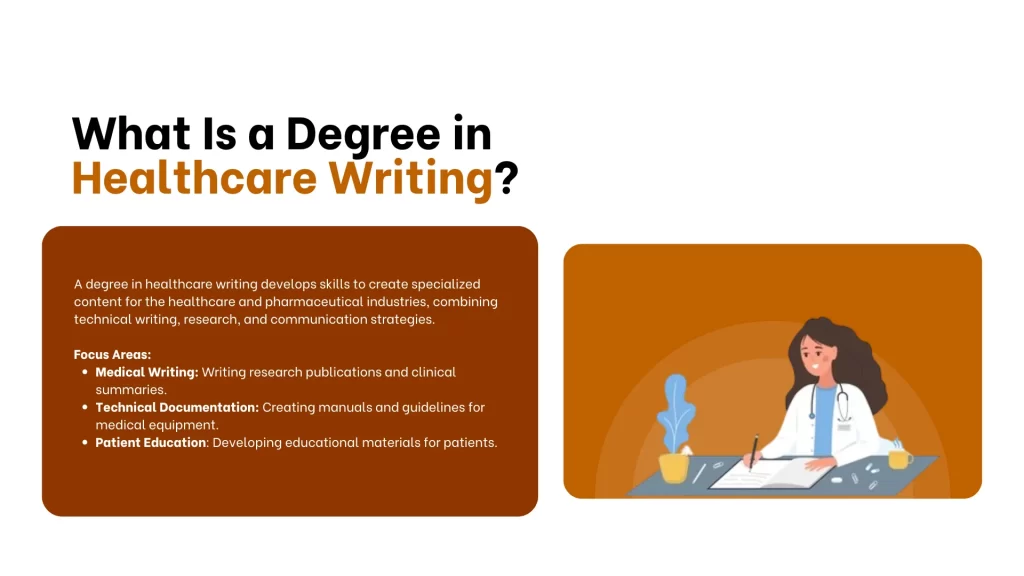
Understanding a Degree in Healthcare Writing
A degree in healthcare writing focuses on developing skills to produce specialized content for the healthcare and pharmaceutical industries. It combines elements of technical writing, research, creative communication, and regulatory knowledge tailored to the needs of healthcare organizations.
Focus Areas of a Degree in Healthcare Writing:
- Medical Writing: Crafting clinical trial summaries, drug application documents, and research publications.
- Technical Documentation: Writing manuals, guidelines, or technical descriptions for medical equipment or software.
- Patient Education Materials: Developing brochures, booklets, and other resources to educate patients about conditions, treatments, or preventive care.
By blending technical knowledge with communication strategies, this degree ensures graduates can meet the growing demands of the healthcare sector. From creating medical content for hospitals to regulatory submissions for pharmaceutical companies, these programs help aspiring writers carve successful careers.
Why Pursue a Degree in Healthcare Writing?
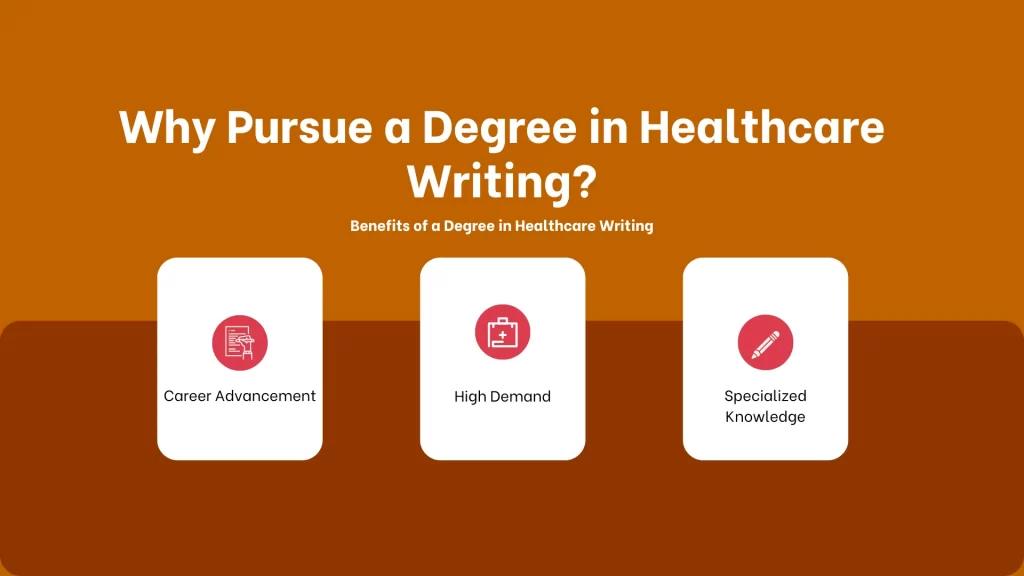
Benefits of a Degree in Healthcare Writing
1. Career Advancement
A formal education in healthcare writing allows candidates to stand out in roles requiring specialized skills. Employers in the healthcare and pharmaceutical fields often prioritize applicants with academic credentials in medical communication, especially for technical roles.
2. Specialized Knowledge
A medical writing degree goes beyond general writing programs by offering training in:
- Understanding medical jargon.
- Adhering to compliance guidelines like HIPAA regulations.
- Writing clear, effective content for both professionals and non-medical audiences.
3. High Demand
The growing complexity of healthcare services has created a significant demand for qualified medical writers to bridge the communication gap between clinicians, patients, and regulatory agencies. From electronic health record (EHR) documentation to patient education materials, the need for specialists is expanding globally.
Career Paths with a Degree in Healthcare Writing
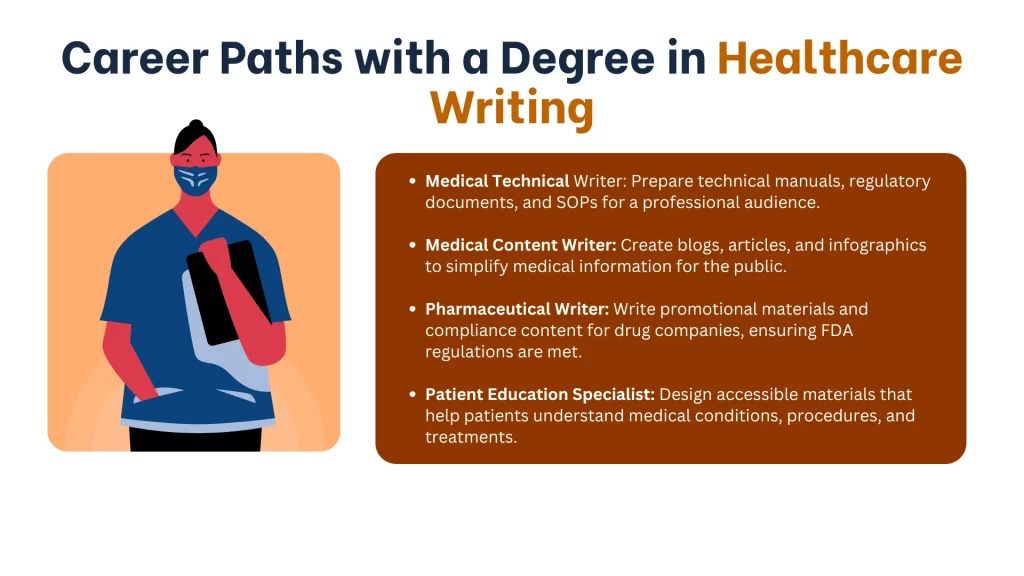
Jobs You Can Land with a Healthcare Writing Degree
Graduates with a degree in healthcare writing can pursue versatile roles across industries like healthcare, pharmaceuticals, and marketing:
1. Medical Technical Writer
Medical technical writers prepare technical manuals, regulatory documents, and standard operating procedures (SOPs) that ensure clarity and accuracy for a professional audience.
2. Medical Content Writer
This role focuses on creating blogs, articles, and infographics for healthcare websites and organizations. Writers often craft content that simplifies medical information to educate the public.
3. Pharmaceutical Writer
Key to pharmaceutical marketing and development, these professionals write promotional materials, product descriptions, and compliance content for drug companies. Attention to FDA regulations is a must.
4. Patient Education Specialist
Patient education specialists design materials that explain medical procedures, conditions, and treatments in an accessible way. These guides foster patient understanding and confidence about their care plans.
The opportunities for graduates with a medical writing degree are broad, allowing them to work in industries ranging from biotech companies to freelance healthcare consulting.
What to Expect in a Healthcare Writing Degree Program
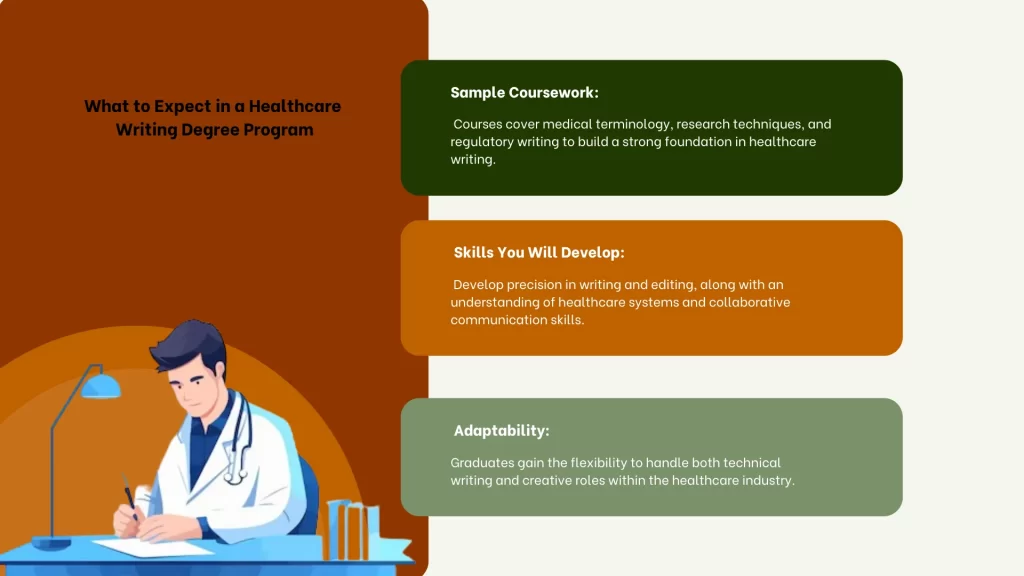
Curriculum and Skills Gained from a Medical Writing Degree
A degree in healthcare writing is geared toward equipping students with both technical expertise and creative writing ability. The complexities of health communication demand a mix of specialty courses and hands-on learning.
Sample Coursework Includes:
- Medical Terminology: Understanding common medical terms and abbreviations used in the field.
- Research and Documentation Techniques: Learning to summarize and present research findings effectively.
- Regulatory Writing: Exploring clinical standards and compliance requirements.
- SEO and Digital Writing for Healthcare: Writing web content optimized for search engines while maintaining accuracy.
Skills You Will Develop:
- Writing and Editing to Precision: Producing work that is error-free and professionally formatted.
- Healthcare Systems Understanding: Learning how healthcare systems operate, from clinical procedures to policy guidelines.
- Collaborative Work: Collaborating with medical experts to create unified communication strategies.
Graduates leave the program equipped for the technical demands of healthcare industries while retaining the flexibility to adapt to creative roles.
Discover how a healthcare writing degree fits into the broader field of medical writing in our Complete Career Guide.
Top Schools Offering Degrees in Healthcare Writing

Best Programs for Aspiring Medical Writers
When selecting a program, it’s vital to choose institutions with proven courses in medical, regulatory, and technical writing. Here are some of the top schools for healthcare writing:
- Johns Hopkins University – Offers an advanced Science Writing Program designed specifically for healthcare writers handling technical subjects.
- University of Chicago – Renowned for its Certificate in Medical Writing and Editing, a program tailored to writing for professionals and patients alike.
- University of California, San Diego – Offers a Medical Writing Certificate program with flexible online study options.
Why Choose Online Programs:
- Allows you to learn at your own pace, ideal for working professionals.
- Programs include virtual mentorship by experienced medical writers.
How to Become a Medical Technical Writer with a Degree

Steps to Start Your Career as a Medical Technical Writer
1. Earn Your Degree
Start by completing a degree or certification program tailored to healthcare writing.
2. Build a Portfolio
Compile writing samples that highlight your ability to write clear, structured medical content. Regulatory documents, patient guides, and summary articles are great inclusions.
3. Gain Experience
Start as an intern or apply for entry-level roles. Internships in medical writing firms or with pharmaceutical companies often lead to full-time opportunities.
4. Join Professional Networks
Organizations like American Medical Writers Association (AMWA) offer networking opportunities, job listings, and continuing education.
Once you’re qualified, explore Entry-Level Medical Writer Jobs to kickstart your career
Salary Expectations for Healthcare Writers
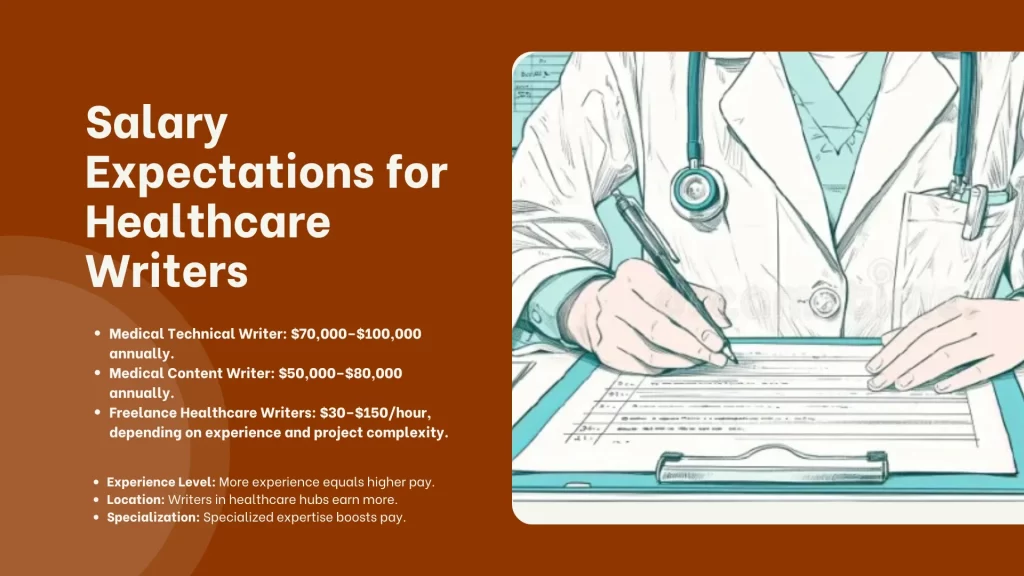
How Much Can You Earn with a Degree in Healthcare Writing?
A degree in healthcare writing can lead to lucrative earning potential.
Salary Ranges by Role:
- Medical Technical Writer: $70,000–$100,000 annually.
- Medical Content Writer: $50,000–$80,000 annually.
- Freelance Healthcare Writers: $30–$150/hour, depending on experience and project complexity.
Factors Influencing Pay:
- Experience Level: Advanced professionals in regulatory writing command higher salaries.
- Location: Writers in metro areas with prominent healthcare hubs (like Boston or San Francisco) tend to earn more.
- Specialization: Expertise in specific fields, such as pharmaceuticals, boosts earning potential.
Check platforms like Glassdoor for job-specific salary data.
Challenges in Healthcare Writing and How to Overcome Them
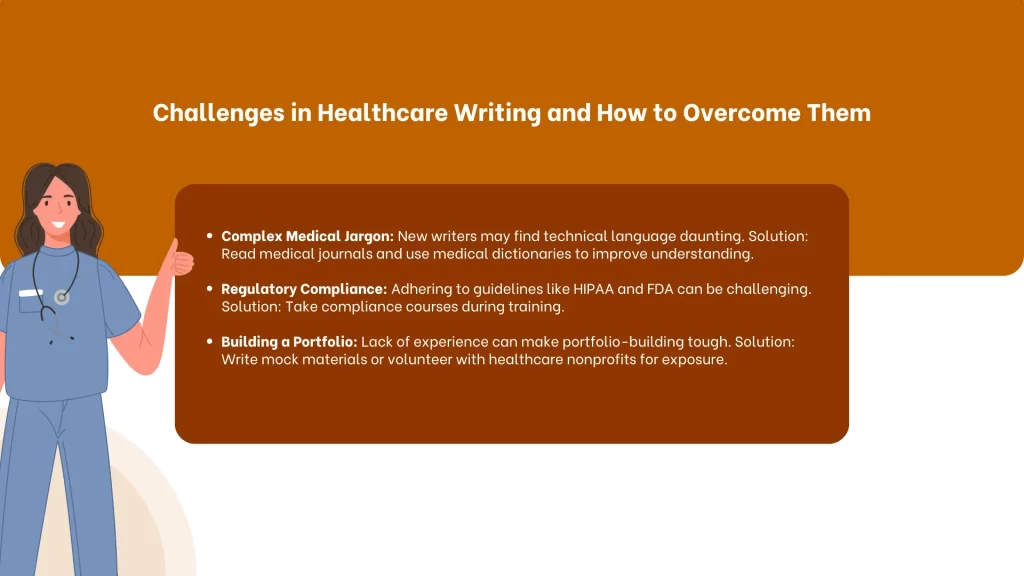
Common Challenges in Healthcare Writing Careers
1. Complex Medical Jargon
New writers may find technical language daunting. Solution? Regularly read medical journals and utilize medical dictionaries to boost comprehension.
2. Regulatory Compliance
Maintaining adherence to guidelines, like HIPAA or FDA standards, can be challenging. Solution? Take compliance courses as part of your training.
3. Building a Portfolio
Many struggle to showcase expertise without prior experience. Solution? Write mock materials or volunteer for healthcare-related nonprofits to gain initial exposure.
By addressing these challenges in healthcare writing, aspiring writers can grow steadily into this rewarding profession.
Expand your opportunities by learning about Careers in Health and Wellness Writing.
Conclusion
A degree in healthcare writing opens doors to endless opportunities. Medical writers are pivotal in simplifying health information and ensuring clarity in patient care, product marketing, and technical guidance. Whether your goal is to become a medical technical writer, patient education specialist, or scientific editor, this career path offers exceptional flexibility and growth.
Take the first step today! Explore degree programs in healthcare writing and begin your rewarding career as a medical technical writer.
